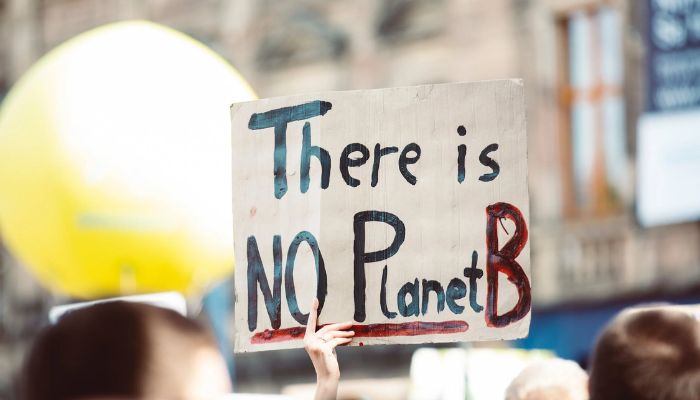This is how climate change affects our health
Rising temperatures brought on by climate change were the biggest threat to public health worldwide in 2021
January 20, 2023

Our health is not exempt from the effects of climate change. Threats brought on by climate change include inflammation brought on by wildfire smoke and disease-carrying vectors migrating to new places.
According to the most recent report by the National Oceanic and Atmospheric Administration, 2022 was the sixth warmest year on record since 1880.
Rising temperatures brought on by climate change, according to a global council of medical experts, were the biggest threat to public health worldwide in 2021. This year, scientists predict that temperatures will rise more. They might establish a brand-new world record in 2024.
Juan Aguilera, MD, PhD, MPH, head of Stanford University's Translational Environmental and Climate Health, discussed the effects of climate change on mental and physical health in an interview with Healthnews.
Wildfire smoke and inflammation
According to Aguilera, climate change has an effect on numerous elements of our lives. For instance, increasing temperatures lengthen dry spells, which causes the soils of forests to dry out. The fires have a tendency to spread and cover larger regions when weeds and bushes are not well hydrated. Wildfires don't just cause property damage and public evictions.
Particles that enter the bloodstream induce inflammation, which over time may result in heart conditions, stroke, artery hardening, and even cancer. Aguilera told the outlet that researchers are now learning that wildfire smoke may also have an impact on the immune system, rendering people more susceptible to various diseases.
There is a connection between the effects of climate change and mental health issues. Living nearby a wildfire risk zone, for instance, might be unsettling. Furthermore, the toxic components in wildfire smoke may impact neurons and thus, mental health.
Frequency of extreme climate events
Extreme weather events like hurricanes and thunderstorms are made worse by climate change, which eventually causes flooding. According to Aguilera, this increases the humidity within the homes, which might lead to the growth of mould.
Mild symptoms from mould, such as a sore throat, a cough, or wheezing, may be experienced by some people. According to the Centers for Disease Control and Prevention, persons with asthma or those allergic to mould, however, could experience severe responses.
Pollen allergies will increase in frequency too because, according to researchers, the length of the pollen season is increasing to up to ten months as a result of climate change.
Protecting yourself from pollution
One of the causes of climate change is air pollution. Unsurprisingly, evidence shows that pollution is increasingly harmful to human health.
For instance, a study from the previous year discovered that black carbon particles are present in a baby's brain, liver, and lungs as early as the first trimester.
Another study showed that body size and composition measurements increased among women in their late 40s and early 50s who were exposed to ozone and nitrogen dioxide air pollution over an extended period of time.
So how can we safeguard ourselves from harmful pollutants? While not everyone will be able to leave areas that are susceptible to air pollution, according to Aguilera, we can learn from the COVID-19 pandemic.
Following the air quality index, which permits tracking of real-time air pollution conditions on a particular day, is one of the steps.
Air purifiers may also aid in trapping these particles and lowering indoor pollution levels.
Are people affected equally?
According to research, ethnic minorities in the United States are disproportionately impacted by pollution and climate change. Black individuals, for instance, are 40% more likely to reside in regions with the largest anticipated increases in mortality caused by extreme temperatures.
The same could apply when we look at the situation globally where developing countries are more affected by pollution and global warming than rich countries who actually contribute the most to climate crisis.
Awareness that our actions have an impact on people outside of our own country, as well as ourselves, is the first step, according to researchers, in establishing health equity.











